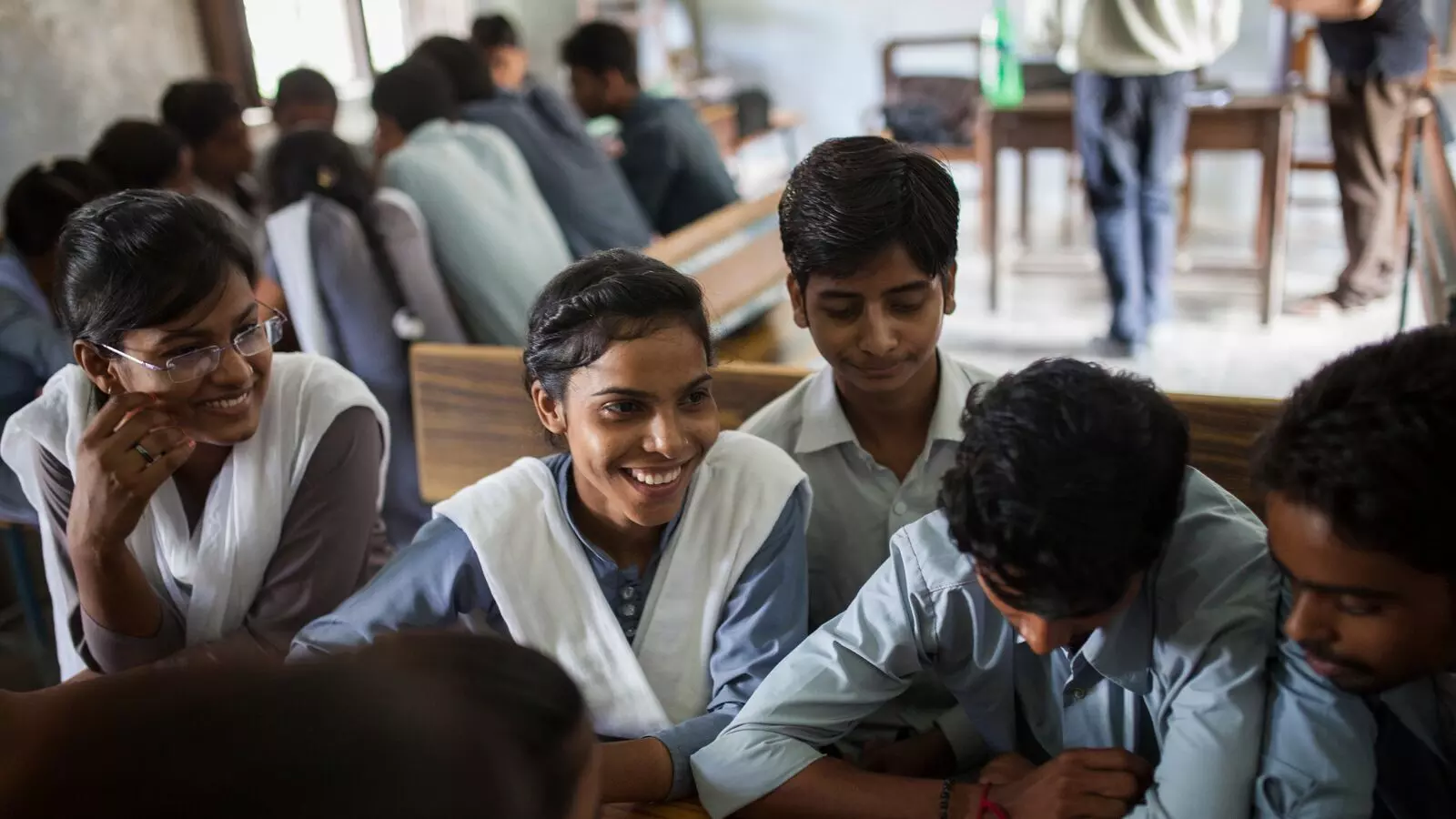India & G20: Way ahead for inclusive education & resilient future

Henry Ford’s saying, “Coming together is a beginning. Keeping together is progress. Working together is success,” encapsulates India’s education agenda as the G20 President. The theme of this year’s G20 summit, ‘One Earth One Family One Future,’ aligns perfectly with India’s long standing belief in the world as one family. It reflects the collective commitment of G20 countries to address the shared challenges of enhancing quality education and skill development. This agenda aims to improve and refine education systems on a global scale.
Prime Minister Narendra Modi during his virtual address also stated that “education is not only the foundation upon which our civilisation has been built, but it is also the architect of humanity’s future.” All the G20 members under India’s Presidency agreed to the critical role that education plays as an enabler of human dignity and empowerment globally. A key takeaway from the G20 Education Ministers’ Meeting (EMM) is the recognition that education encompasses more than just academic learning. It emphasised the importance of equipping learners with life skills, technical expertise, and vocational capabilities to enable them to thrive in a rapidly changing and interconnected global society.
“This collective agreement reflects a profound understanding of education that surpasses traditional classroom-based knowledge acquisition. By recognising the significance of life skills, technical expertise, and vocational training, G20 members demonstrate a broader commitment to preparing individuals for the challenges and opportunities that lie ahead. The emphasis on lifelong learning also underscores the recognition of the need for continuous personal and professional growth, fostering adaptability in an ever-evolving global landscape. This commitment reflects the understanding that education is not confined to a specific timeframe but should be a lifelong pursuit, enabling individuals to navigate and excel in an ever-changing world,” said Anirban Aditya, chairman, Aditya Group.
Pradeepta Chatterjee, principal, Techno India Group Public School, Chinsurah, Hooghly, believes it is the need of the hour that education extends beyond traditional classroom instruction. “Today’s world is looking for students’ holistic development at school level. Hence when the student passes out, he or she should be fully ready to face the world. For this, only classroom academics cannot help. The student should be given lessons in various other disciplines to learn, and understand life and that should be through experiential learning, application-oriented learning, life skills and sports,” she said.
During the G20 EMM, the G20 members agreed on the need to ensure that everyone irrespective of age, gender, socio-economic or cultural background or those who are facing physical, mental or other learning difficulties or special needs have access to quality, inclusive and equitable education, and training. In a consensus, all G20 members have unequivocally acknowledged the paramount importance of guaranteeing universal access to high-quality, inclusive, and equitable education and training for individuals, regardless of their age, gender, socio-economic status, cultural background, or any physical, mental, or learning challenges they may encounter.
At the ministerial meeting, all G20 members also agreed on the urgent and collective action required to ensure that all learners acquire foundational learning, so that, by 2030, the percentage of children, particularly girls and children with disabilities, not able to reach and understand a simple text and do simple match is reduced substantially. The ministers reiterated their unwavering commitment to bridging the digital divide for all learners, addressing barriers related to technological infrastructure. They also emphasised the importance of collaborative efforts to develop affordable and easily accessible technology ecosystems and learning resources, including those in local languages. India mentioned how it has taken a proactive role to provide study material to the differently abled through Digitally Accessible Information System (DAISY) and sign languages. The education ministry’s initiative ‘Manodarpan’ provides psychosocial support to students, teachers and families and promotes mental health and emotional wellbeing.
In fact, digital transformations are seen as a cornerstone in shaping the future of societies and economies. The G20 countries also recognised the potential of digital technologies, women-led development, green transition, and education for sustainable development and lifestyles (LiFE) in driving positive change and fostering sustainable development worldwide. “I believe this decision for sustainable development & lifestyle (LiFE) sets the stage for a transformative approach to education in India. It embraces digital advancements, empowers women, and promotes sustainability, creating an inclusive and environmentally conscious education system. This prepares learners to thrive and contribute to the achievement of the SDGs in India,” said Harshil Gala, CEO, Navneet Toptech.
Aditya strongly roots education for sustainable development and lifestyles (LiFE). According to him, LiFE will equip individuals with the knowledge and skills needed to address pressing environmental challenges. “The G20 decision provides India with an opportunity to align its education policies and practices with these global goals, thereby positively impacting the future of education in the country,” he said.
The G20 members acknowledged the crucial role of teachers and education staff worldwide in promoting education. They emphasised the need to prioritise capacity building and exchange programmes to empower teachers and staff, enabling them to excel in their profession.
Chatterjee informs teachers, school administrators are constantly being provided training in online and offline programmes, workshops through capacity-building programmes organised by CBSE and NCERT to update the teachers regarding the latest in pedagogy and other fields of the educational world. “The role of teachers mandatorily needs to change, aligning with the NEP 2020. It is necessary to change the overall environment of every school campus. It’s time now for teachers to change their style and pattern of teaching to sustain in their profession,” she said.



